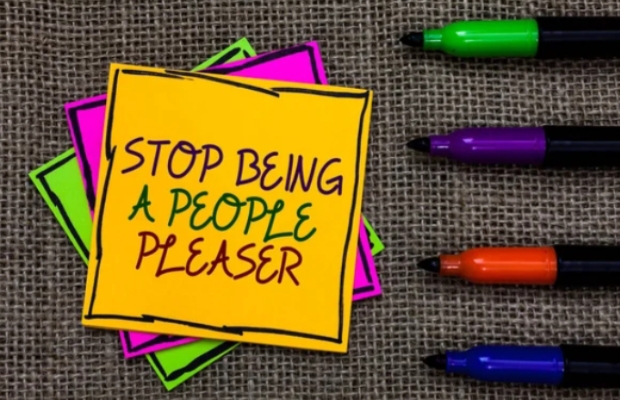
In a world that often worships outcomes—quarterly gains, titles, awards, and the next big achievement—the idea that success without peace of mind is worthless may sound like a melodramatic sermon. Yet there is a deep truth beneath it: genuine success is not merely what you accumulate in your bank account or on your resume, but the quality of your inner life as you pursue your goals. When peace of mind is missing, achievement can hollow out the soul, leaving you with a trophy and a tired heart.
The two halves of success: external metrics and internal steadiness
External success is tangible. It measures into the market, the classroom, or the stage. It signals competence, ambition, and the ability to turn ideas into results. Internal peace, by contrast, is quiet and continuous. It’s the sense that your thoughts are aligned with your actions, that you are not chasing the next thing at the expense of the present, and that you can weather setbacks without spiraling into fear or chaos.
When these two halves diverge—when you sprint toward a goal while your mind is frenzied, exhausted, or disconnected from your deepest values—success becomes brittle. A promotion may bring temporary validation, but if it’s accompanied by sleep deprivation, strained relationships, or constant anxiety, its net value diminishes. In the long run, the price of success without inner peace is often burnout, poor decisions, and a degradation of what you were trying to achieve in the first place.
Why peace of mind matters for durable success
- Decision quality improves. Calm attention supports clearer thinking, better risk assessment, and fewer impulsive moves. In high-stakes moments, a mind at ease is less prone to cognitive biases driven by fear or ego.
- Sustained energy, not just bursts. Peace of mind comes with rest, boundaries, and a healthy pace. This sustains motivation and performance over weeks, months, and years, rather than producing a short-lived spike followed by collapse.
- Relationships matter. Leadership, teamwork, and personal influence rely on trust and connection. When your inner state is unsettled, relationships fray, collaboration suffers, and opportunities slip away.
- Creativity follows stillness. Paradoxically, innovation often emerges when the mind isn’t spinning in overdrive. Quiet time and mental space allow ideas to incubate and mature.
- Meaning and resilience. A life driven by purposeful aims—and the peace that comes from living in line with those aims—builds resilience. You can endure setbacks, learn from them, and keep moving forward.
The cost of success without peace of mind
- The hollow victory of perpetual hustle. Some pursue more titles, more money, or more influence, only to find that the relentless pace erodes health, sleep, and relationships. The same person who seems to “have it all” may carry a chronic sense of restlessness or a gnawing fear of losing what they built.
- The anxiety of staying on top. Maintaining high performance under constant scrutiny can generate chronic stress. The fear of failure, the need to prove oneself, and the pressure to outpace competitors can become a perpetual anxiety loop.
- The erosion of values. In some cases, the methods used to achieve success conflict with deeper values—honesty, fairness, loyalty. When the gap between actions and values grows, peace evaporates and pride falters.
- The cost to health. Sleep deprivation, poor nutrition, and limited downtime take a toll on mental health. Even when achievements accumulate, terrible mood, irritability, and diminished cognitive function can undermine future opportunities.
How to cultivate peace of mind while pursuing success
- Clarify your north star. Define not only what you want to accomplish but why it matters to you at a core level. A clear sense of purpose provides a compass when choices become difficult and prevents you from drifting toward “more” for its own sake.
- Align actions with values. Regularly check that your daily routines reflect your stated values. When there’s misalignment, adjust, or reframe goals so they fit your principles rather than tempt you away from them.
- Build sustainable boundaries. Protect sleep, personal time, and healthy relationships. Learn to say no and delegate. A lightweight but reliable structure often beats heroic but exhausting bursts of effort.
- Practice present-mocused strategies. Techniques like mindfulness, breathing exercises, or short pauses before important decisions help keep your mind calm and centered.
- Prioritize rest and recovery. Treat rest as a productivity tool, not a luxury. Consistent sleep, physical activity, and time away from screens recharge cognitive resources and mood.
- Treat failure as feedback. Resilience grows when you reinterpret setbacks as information for learning rather than verdicts on your worth. This mindset reduces fear and preserves inner peace.
- Cultivate gratitude and reflection. Short daily practices—what went well, what you’re grateful for, what you’ll improve—bolster mood and keep you grounded in reality.
- Foster supportive relationships. Surround yourself with people who challenge you kindly, hold you accountable, and provide honest feedback. Strong social ties are a pillar of mental health and sustainable success.
- Redefine success. Consider success as a composite of outcomes and process. Metrics matter, but so do well-being, integrity, and the quality of your daily life. A revised definition often reduces the pressure to chase unhealthy extremes.
- Create micro-systems, not miracles. Build routines that scale with your life: consistent sleep windows, morning planning rituals, weekly reviews, and regular time for rest. Small, reliable habits outperform sporadic genius.
When it’s okay to chase more now and slow down later
There are times when aggressive pursuit of success is appropriate or even necessary—during a pivotal career transition, a strategic business launch, or critical personal circumstances. In those moments, the goal is to move decisively while preserving the capacity for peace beyond the sprint. The trick is to design the sprint so it doesn’t become a lifelong sprint. Set explicit end points, negotiate post-sprint recovery, and ensure you have a plan to restore balance after the peak.
A practical framework for balancing ambition with inner calm
- Define a success portfolio: list three to five external aims (e.g., revenue target, product milestone) and three to five internal aims (e.g., sleep target, weekly date night, hours of meditation). Ensure both sides of the portfolio are nourished.
- Schedule peace as a non-negotiable item. Put it in your calendar just like meetings. If something conflicts with this time, revisit the priority.
- Use value-based decision points. Before major choices, ask: Does this move me closer to my north star? Does it compromise essential values or peace-of-mind that I want to protect?
- Conduct periodic audits. Monthly or quarterly, review what success has felt like emotionally and mentally. Adjust goals, routines, or boundaries based on what you learn.
A final reflection
Success, in its richest sense, includes not only outcomes but the steadiness of a mind that can enjoy, endure, and contribute. Peace of mind is not a luxury to be sacrificed on the altar of achievement; it is a foundational resource that makes achievement meaningful, repeatable, and sustainable. When your inner life is aligned with your external efforts, you don’t just accumulate success—you cultivate a life in which success remains fulfilling across time.
If you’re starting today, consider this simple invitation: pick one area where you want more peace this week. It could be better sleep, a shorter workday, a boundary with emails after hours, or a daily moment of stillness. Then pair that peaceful practice with one tangible professional goal. Observe how the two progress together over seven days, and adjust. Small, consistent steps toward inner calm can transform not just how much you achieve, but how deeply you experience the journey.


